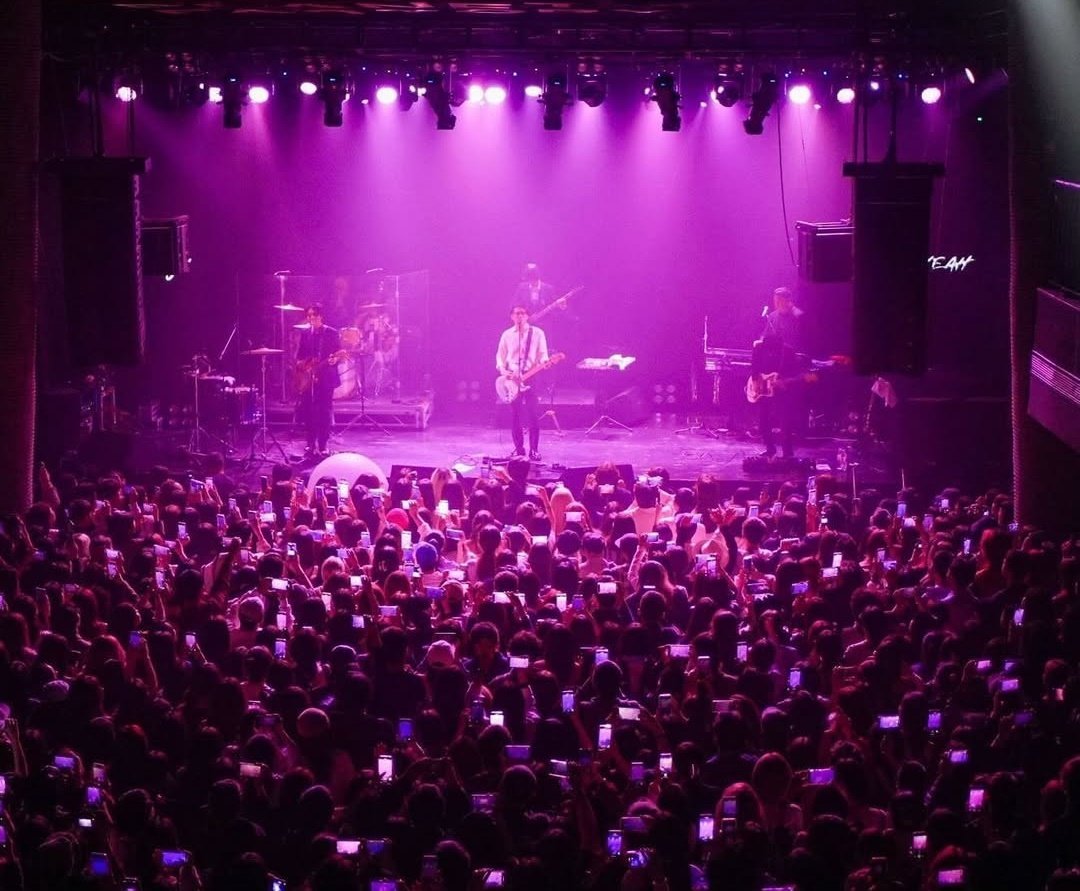Will the door to China, which has been closed for 8 years, open? Love calls for K-pop performances ‘Slowly’

Singer-songwriter Black Skirt is seen holding a solo concert at a venue in Xi‘an, Shaanxi Province, China in October last year. Photo source: Black Skirt SNS
The content exchange between the two countries, which had been frozen due to the ‘Hallyu ban’ (Korean Wave ban) caused by the ‘THAAD incident’ and the COVID-19 situation, is showing signs of opening up after 8 years, drawing attention. In particular, K-pop, which is gaining huge popularity locally, is drawing attention as a ‘bridgehead’, and both inside and outside the music industry are paying keen attention to related changes.
According to a comprehensive report by Sports Donga on the 5th, some large Chinese concert planning companies have recently started inquiring about the schedules of solo concerts by K-pop singers to domestic agencies. An official from the concert industry said, “It is still difficult to predict whether the actual concert will happen, but the temperature change can definitely be felt, as local concert companies are asking for specific contract terms.”
Compared to the fact that Korean singers were unable to hold official performances in China after the THAAD ban in 2016, this trend is clearly positive. Since 2023, when the COVID-19 situation calmed down, K-pop groups have occasionally held fan signing events locally, but have not been able to hold solo concerts.
Singer-songwriter Black Skirt (Cho Hyu-il) also added fuel to the change by holding a concert, ‘Teen Trouble in China’, in Xi‘an, Shaanxi Province, China in October of last year. The concert marked the first Korean singer concert to be held in China in eight years since the THAAD ban.
Of course, some are cautiously skeptical about whether Korean singers will have performance opportunities following the performance by Black Skirts, who have American citizenship. In relation to this, Minister of Culture, Sports and Tourism Yoo In-chon said last month at a meeting to announce policies for this year, “The Chinese government has raised issues such as K-pop singer concerts, so we have also proposed a methodology,” further raising expectations for the lifting of the ban on Korean Wave.
Chinese companies are also moving quickly to respond to related changes. Tencent Music Entertainment Group, which operates the Chinese music platform QQ Music, announced plans to launch the local service ‘Bubble’, a fan communication messenger of Dear U, an affiliate of SM Entertainment, in the first half of this year in the form of QQ Music.
Reporter Yoo Ji-hye yjh0304@donga.com

